Filter by
# Debug Box
/var/www/htdocs/pustaka-digital/lib/SearchEngine/SearchBiblioEngine.php:688 "Search Engine Debug 🔎 🪲"
Engine Type ⚙️: "SLiMS\SearchEngine\SearchBiblioEngine"
SQL ⚙️: array:2 [ "count" => "select count(sb.biblio_id) from search_biblio as sb where sb.opac_hide=0 and ((match (sb.topic) against (:subject in boolean mode)))" "query" => "select sb.biblio_id, sb.title, sb.author, sb.topic, sb.image, sb.isbn_issn, sb.publisher, sb.publish_place, sb.publish_year, sb.labels, sb.input_date, sb.edition, sb.collation, sb.series_title, sb.call_number from search_biblio as sb where sb.opac_hide=0 and ((match (sb.topic) against (:subject in boolean mode))) order by sb.last_update desc limit 10 offset 60" ]
Bind Value ⚒️: array:1 [ ":subject" => "'+\"Religion\"'" ]

Delusions in context
This open access book offers an exploration of delusions—unusual beliefs that can significantly disrupt people’s lives. Experts from a range of disciplinary backgrounds, including lived experience, clinical psychiatry, philosophy, clinical psychology, and cognitive neuroscience, discuss how delusions emerge, why it is so difficult to give them up, what their effects are, how they are manage…
- Edition
- -
- ISBN/ISSN
- 9783319972022
- Collation
- xi, 121p. : ill.
- Series Title
- -
- Call Number
- 616.89 DEL d
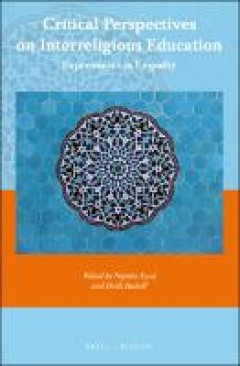
Critical perspectives on interreligious education: experiments in empathy
In Experiments in Empathy: Critical Reflections on Interreligious Education, the contributors provide a roadmap for practicing and developing innovative ways to teach religion that promotes interfaith understanding and cooperation. Readership: All interested in interreligious education, interfaith movement, comparative theologies, religious education, religion and politics will find Experiments…
- Edition
- -
- ISBN/ISSN
- 9789004420045
- Collation
- vii, 252p.
- Series Title
- Currents of encounter, vol.63
- Call Number
- 207.5 SYE c
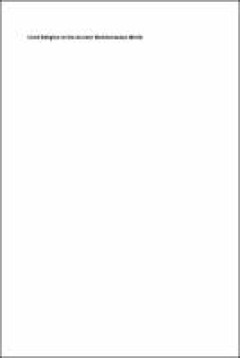
Lived religion in the ancient Mediterranean world
The Lived Ancient Religion project has radically changed perspectives on ancient religions and their supposedly personal or public character. This volume applies and further develops these methodological tools, new perspectives and new questions. The religious transformations of the Roman Imperial period appear in new light and more nuances by comparative confrontation and the integration of ma…
- Edition
- -
- ISBN/ISSN
- 9783110557596
- Collation
- VIII, 597 p.
- Series Title
- -
- Call Number
- 299 LIV l

Mythic discourses
"Mythic discourses in the present day show how vernacular heritage continues to function and be valuable through emergent interpretations and revaluations. At the same time, continuities in mythic images, motifs, myths and genres reveal the longue durée of mythologies and their transformations. The eighteen articles of Mythic Discourses address the many facets of myth in Uralic cultures, from …
- Edition
- -
- ISBN/ISSN
- 9789522227638
- Collation
- 320 p.; 22 cm.
- Series Title
- Studia Fennica Folkloristica
- Call Number
- 301 MYT m
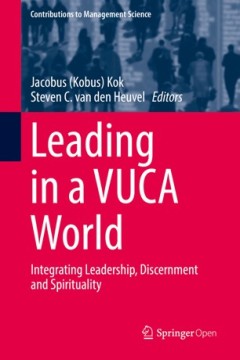
Leading in a VUCA world : integrating leadership, discernment and spirituality
This open access book brings together works by specialists from different disciplines and continents to reflect on the nexus between leadership, spirituality and discernment, particularly with regard to a world that is increasingly volatile, uncertain, complex, and ambiguous (VUCA). The book spells out, first of all, what our VUCA world entails, and how it affects businesses, organizations, and…
- Edition
- -
- ISBN/ISSN
- 9783319988849
- Collation
- xvi, 207p. : ill.
- Series Title
- -
- Call Number
- 658.4092 LEA l

Cultural Crossroads in the Middle East
The region of the Middle East has been called the cradle of mankind. This volume studies historical, cultural, religious, social and political legacies, which play a central role in obstructing intercultural dialogue in the Middle East. The region became home to numerous cultures, religions and ethnicities with long experience of living together in a multicultural environment and has an immense…
- Edition
- -
- ISBN/ISSN
- 9789949031764
- Collation
- 349 p.
- Series Title
- Studia Orientalia Tartuensia. Series Nova
- Call Number
- 200 CUL c

Indigenous cultures and sustainable development in Latin America
This open access book outlines development theory and practice overtime as well as critically interrogates the “cultural turn” in development policy in Latin American indigenous communities, specifically, in Guatemala, Honduras, Ecuador, and Bolivia. It becomes apparent that culturally sustainable development is both a new and old idea, which is simultaneously traditional and modern, and th…
- Edition
- -
- ISBN/ISSN
- 9783030370237
- Collation
- ix, 253p. : ill.
- Series Title
- -
- Call Number
- 306.098 MAC i

The mythology in our language
In 1931 Ludwig Wittgenstein wrote his famous Remarks on Frazer’s “Golden Bough.". At that time, anthropology and philosophy were in close contact—continental thinkers drew heavily on anthropology’s theoretical terms, like mana, taboo, and potlatch, in order to help them explore the limits of human belief and imagination. Now the book receives its first translation by an anthropologist, …
- Edition
- -
- ISBN/ISSN
- 9780990505068
- Collation
- IX, 250 p.
- Series Title
- -
- Call Number
- 201.3 WIT m
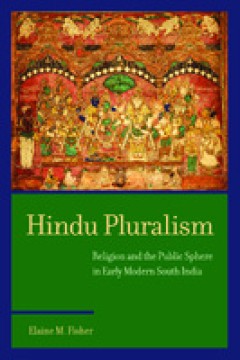
Hindu Pluralism: Religion and the Public Sphere in Early Modern South India
In Hindu Pluralism, Elaine M. Fisher complicates the traditional scholarly narrative of the unification of Hinduism. By calling into question the colonial categories implicit in the term “sectarianism,” Fisher’s work excavates the pluralistic textures of precolonial Hinduism in the centuries prior to British intervention. Drawing on previously unpublished sources in Sanskrit, Tamil, and T…
- Edition
- -
- ISBN/ISSN
- 9780520966291
- Collation
- XI, 300 p.
- Series Title
- -
- Call Number
- 294.509548 FIS h
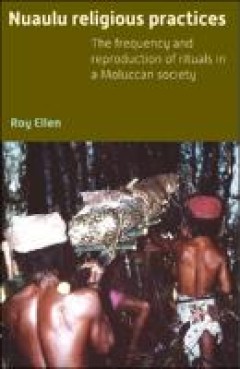
Nuaulu Religious Practices : The frequency and reproduction of rituals in a M…
How religious practices are reproduced has become a major theoretical issue. This work examines data on Nuaulu ritual performances collected over a 30 year period, comparing different categories of event in terms of frequency and periodicity. It seeks to identify the influencing factors and the consequences for continuity. Such an approach enables a focus on related issues: variation in perform…
- Edition
- -
- ISBN/ISSN
- 9789004253452
- Collation
- xxviii, 356 p.
- Series Title
- Verhandelingen van het Koninklijk Instituut voor Taal-, Land- en Volkenkunde, 283
- Call Number
- 299.9222 ELL n
 Computer Science, Information & General Works
Computer Science, Information & General Works  Philosophy & Psychology
Philosophy & Psychology  Religion
Religion  Social Sciences
Social Sciences  Language
Language  Pure Science
Pure Science  Applied Sciences
Applied Sciences  Art & Recreation
Art & Recreation  Literature
Literature  History & Geography
History & Geography